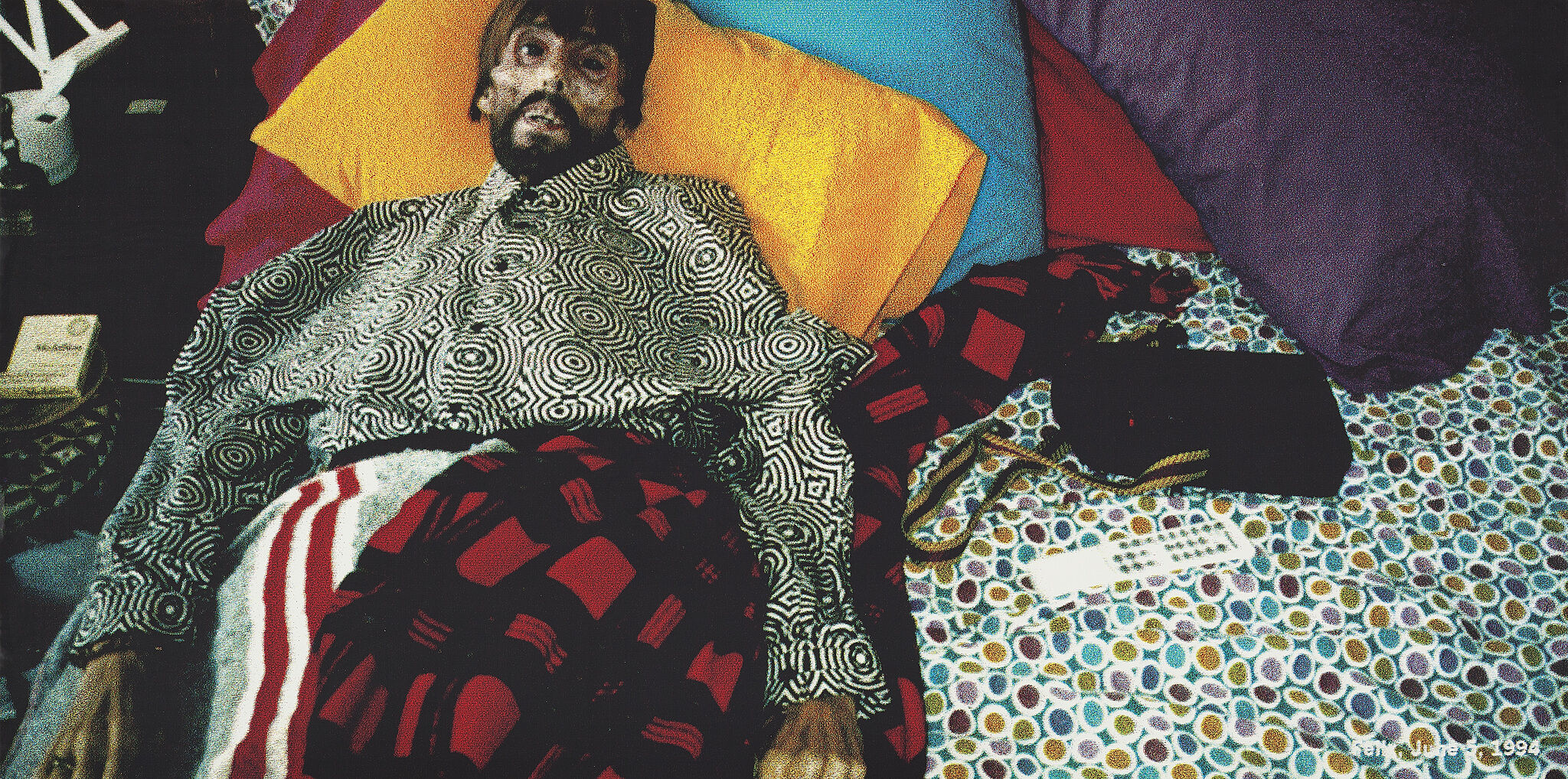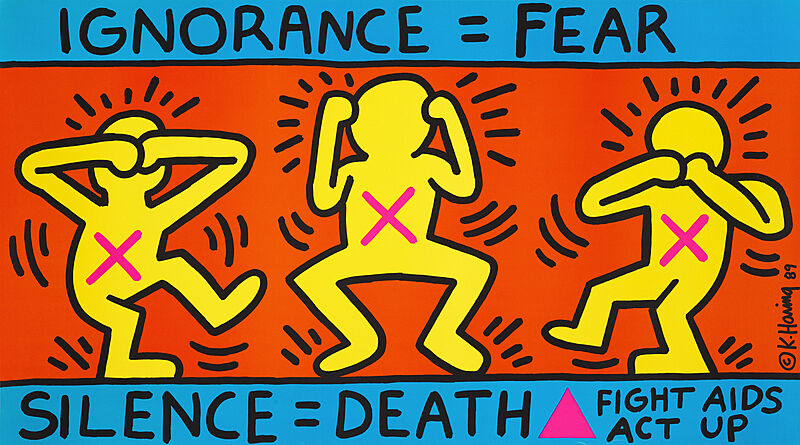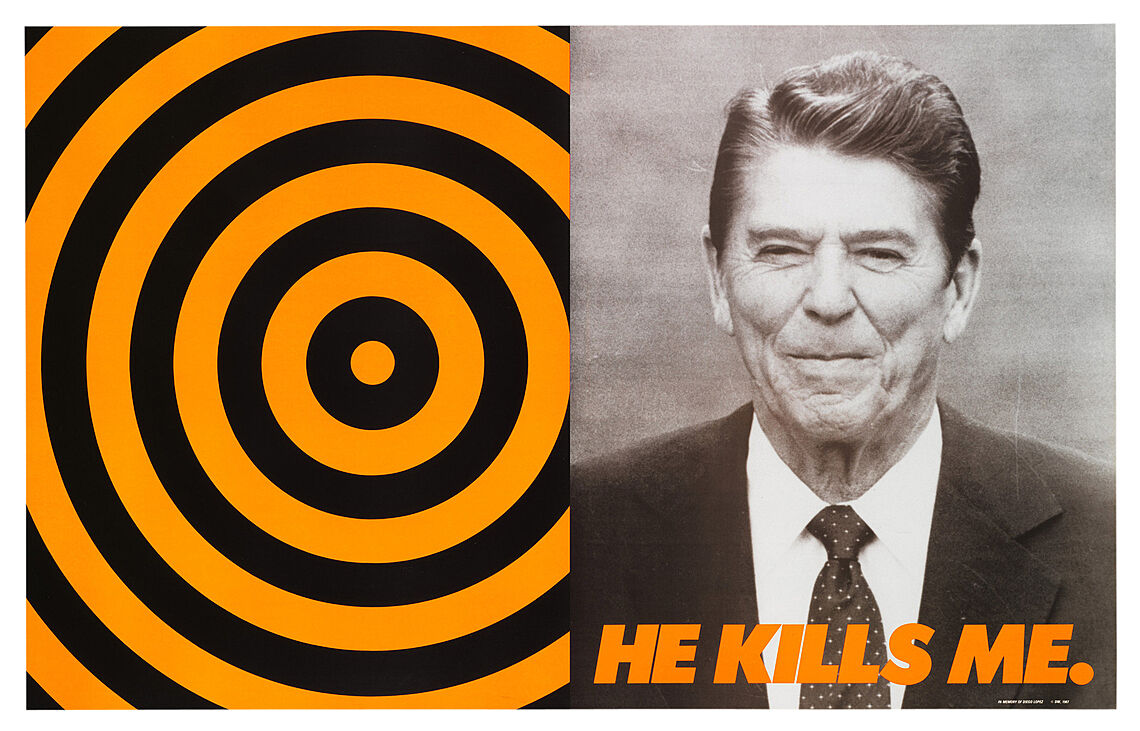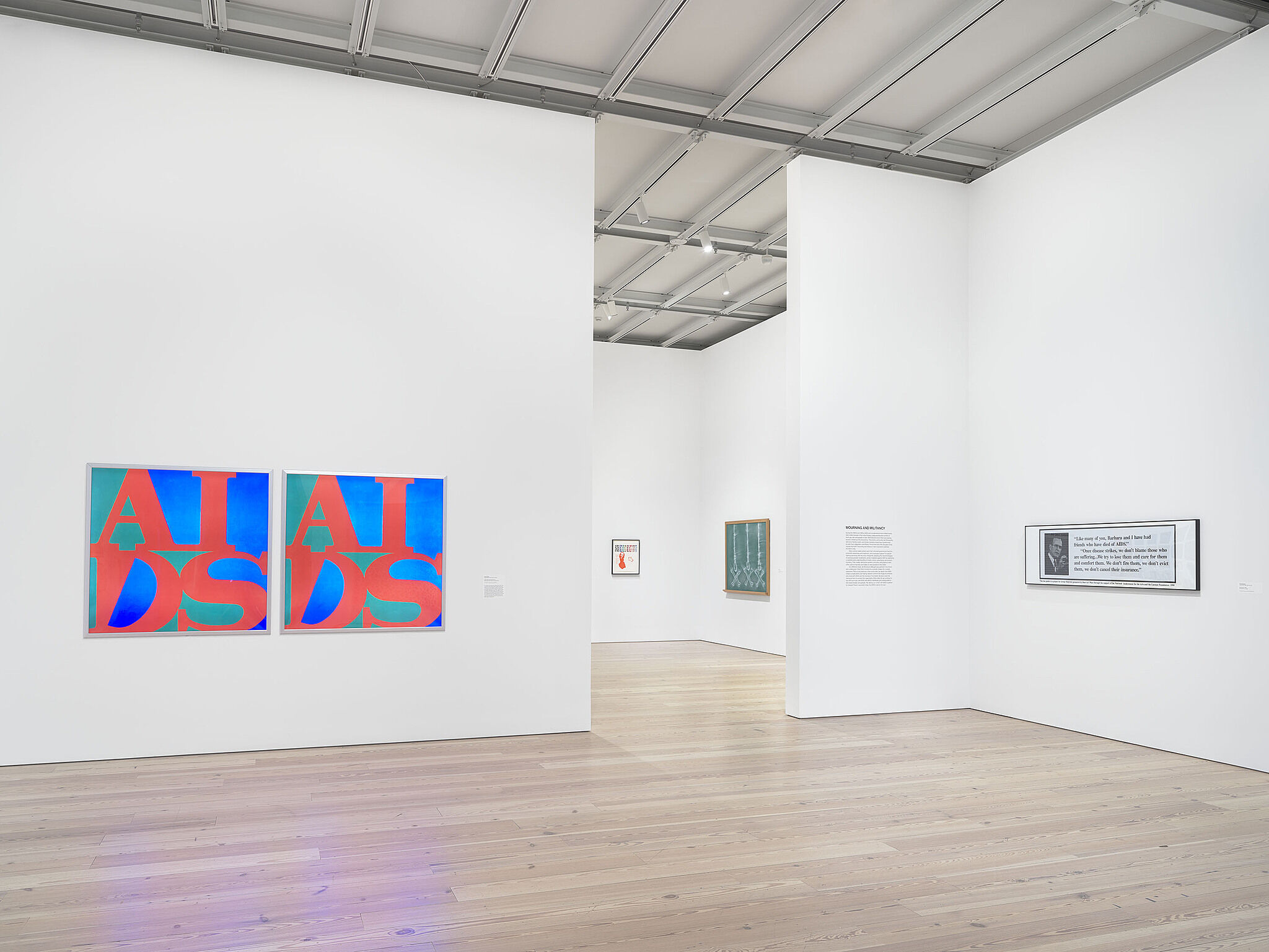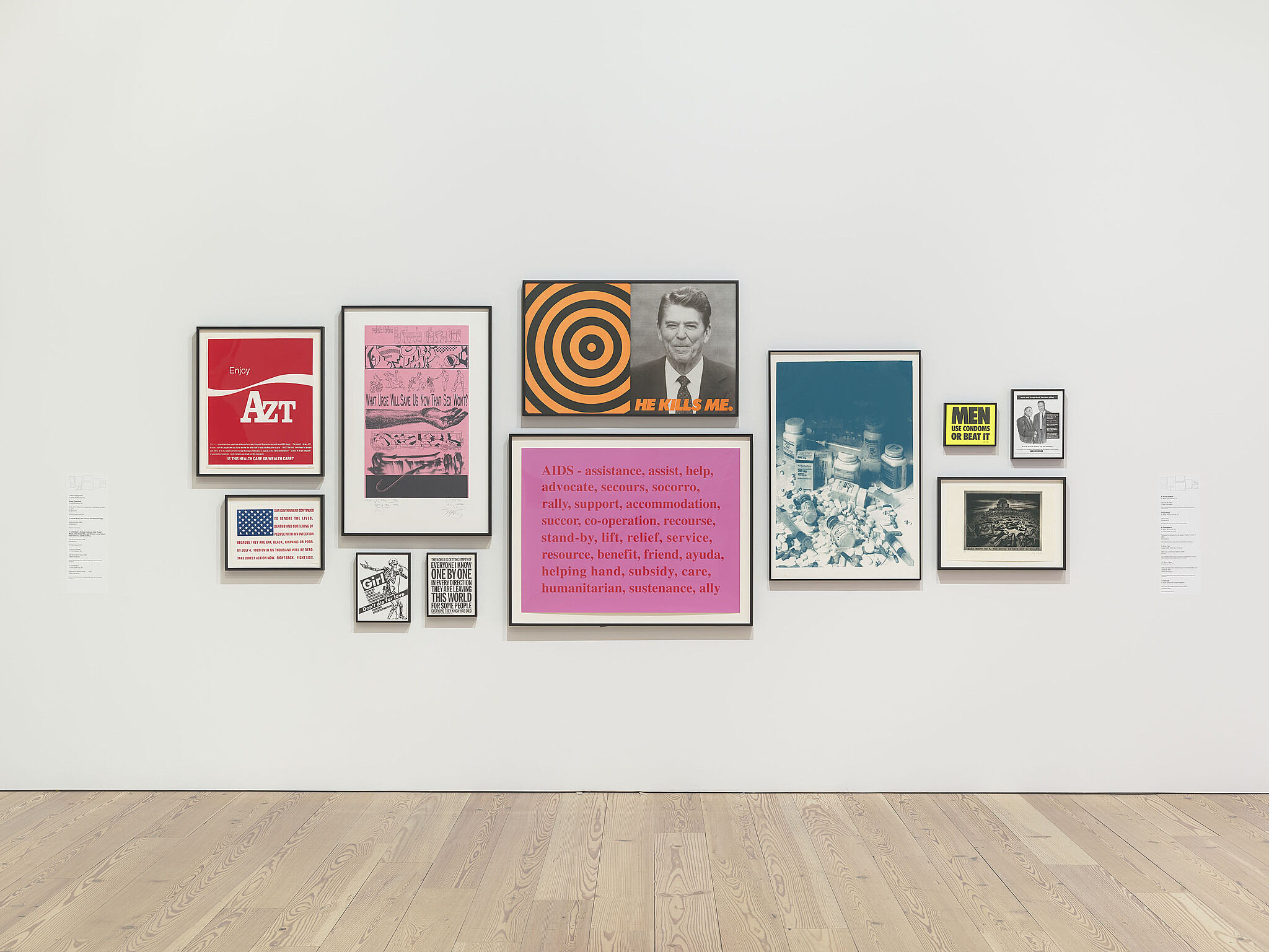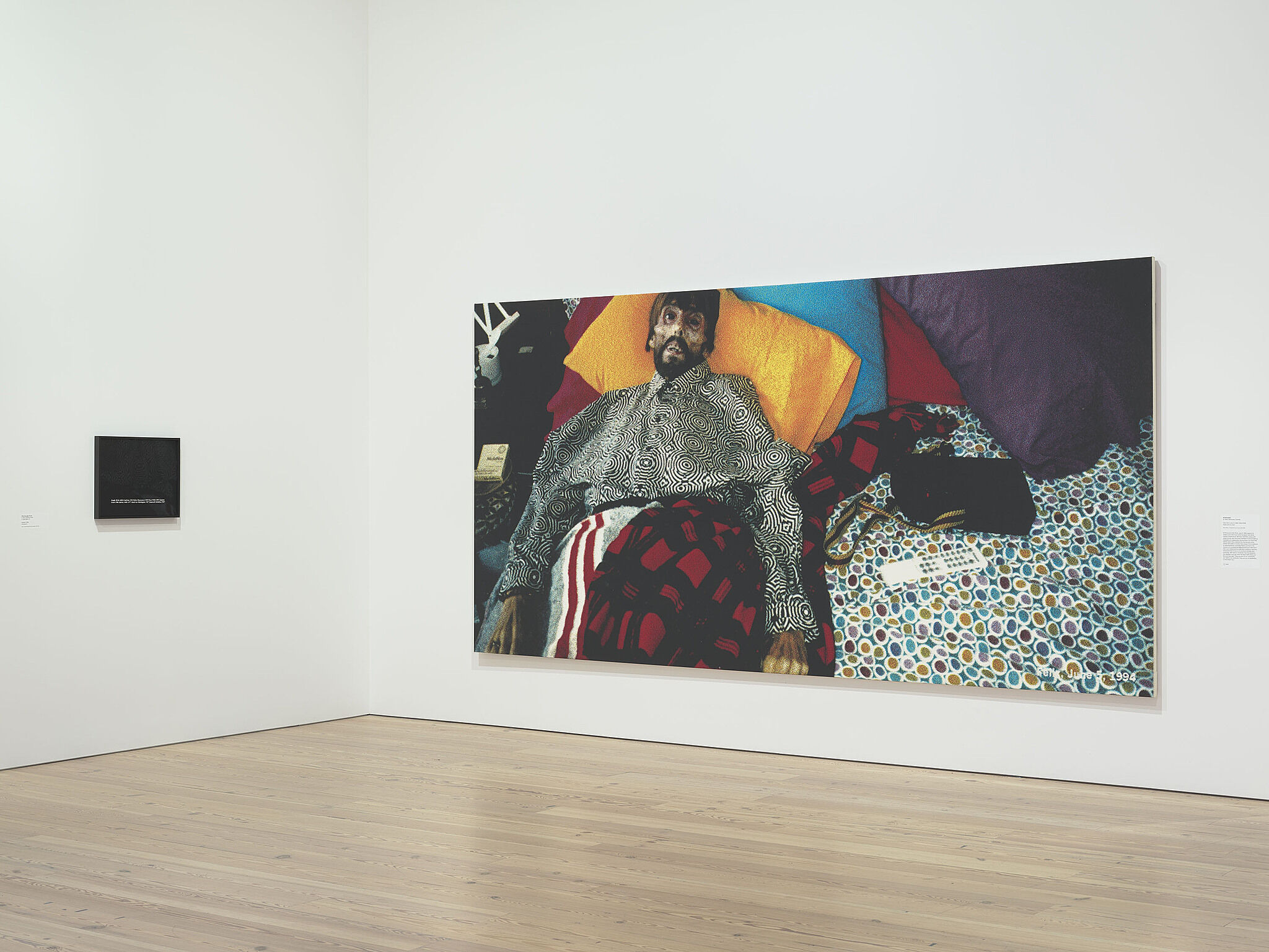An Incomplete History of Protest: Selections from the Whitney’s Collection, 1940–2017 | Art & Artists
Aug 18, 2017–Aug 27, 2018
An Incomplete History of Protest: Selections from the Whitney’s Collection, 1940–2017 | Art & Artists
Mourning and Militancy
6
During the 1980s and 1990s, AIDS and complications from it killed nearly half a million people in the United States, a disproportionate number of them gay men and people of color. AIDS became one of the most searing issues in American life and politics. The artistic community lost thousands; still more friends, lovers, and family members faced lives transformed by grief, fear, indignation, and illness. The activist and critic Douglas Crimp argued that both “mourning and militancy” were required to address the AIDS crisis.
Many artists made activist work that criticized government inaction, promoted awareness and treatment, and expressed support for people fighting and living with the virus. Frequently adopting the visual strategies of previous protest movements, artists mobilized against AIDS by deploying a sophisticated understanding of media culture, advertising, and product branding. Their widely distributed posters, artworks, and graphics were often used at marches and rallies or were posted on the street.
In a different mode, AA Bronson’s billboard-size portrait of his friend and collaborator Felix Partz transforms a private image into a public statement. Partz is pictured just a few hours after his death from AIDS-related complications. By making viewers confront the image of someone who lived with AIDS and the rawness of his death, Bronson uses the memorial form to protest the magnitude of the crisis. As we continue to live with such loss, and AIDS still affects individuals and communities in the United States and globally, the rallying cry of ACT UP (AIDS Coalition to Unleash Power) resounds today: the AIDS crisis is not over.
Artists
- John Ahearn
- Emma Amos
- Richard Avedon
- Rudolf Baranik
- Bastian
- Andrea Bowers
- Mark Bradford
- AA Bronson
- Paul Burlin
- Andrew Castrucci
- Paul Chan
- Mel Chin
- Larry Clark
- Clergy and Laymen Concerned
- Sue Coe
- William N. Copley
- william cordova
- Crash
- Greg Daily
- Allan D'Arcangelo
- Bruce Davidson
- Daze
- Richard Deagle
- Jane Dickson
- Louis H. Draper
- Hock E Aye Vi Edgar Heap of Birds
- Melvin Edwards
- England Free Press
- Avram Finkelstein
- Larry Fink
- Hermine Freed
- Vincent Gagliostro
- Ja'Tovia Gary
- Theaster Gates
- General Idea
- Jeffrey Gibson
- John Giorno
- Leon Golub
- Felix Gonzalez-Torres
- Gran Fury
- Nancy Grossman
- Gross National Product
- Group Material
- Guerrilla Girls
- Keith Haring
- Leslie Hewitt
- Charles B. Hinman
- Jenny Holzer
- International Union of Students
- Rashid Johnson
- Mary Kelly
- Edward Kienholz
- Barbara Kruger
- Kiyoshi Kuromiya
- Suzanne Lacy
- Tom Lafferty
- Lambert Studios, Inc.
- Annette Lemieux
- John Lennon
- Glenn Ligon
- Fred Lonidier
- A. Lunsford
- Michael Lynne
- Daniel Joseph Martinez
- Josephine Meckseper
- Julie Mehretu
- Toyo Miyatake
- Mobilization by the Antioch Bookplate Co.
- Donald Moffett
- Frank Moore
- Peter Moore
- Robert Morris
- Napalm Graphics
- National Peace Action Coalition
- Senga Nengudi
- Louise Nevelson
- New Mobilization Committee to End the War in Vietnam
- Northern California Peace Action Coalition
- Yoko Ono
- Gordon Parks
- Dan Patterson
- Don Peterson
- Irving Petlin
- Howardena Pindell
- Carl Pope
- Pro-Arts, Inc.
- Ad Reinhardt
- Marlon Riggs
- Faith Ringgold
- Kay Rosen
- Martha Rosler
- Robert L. Ross
- Santa Monica Moratorium Committee
- Dread Scott
- Brian Shannon
- Gary Simmons
- Leif Skoogfors, 1940-
- Jaune Quick-to-See Smith
- Jack Sonenberg
- SP/4 Vietnam
- Nancy Spero
- Tom Starace
- May Stevens
- Student Mobilization Committee to End the War in Vietnam
- Carol Summers
- the Gallery
- The Union of Vietnamese in the United States
- Tim Rollins and K.O.S.
- Mierle Laderman Ukeles
- United Women’s Contingent
- Unknown artist
- Various artists
- Vietnam Day Committee
- Vietnam Peace Parade Committee
- Vietnam Referendum '70
- Kara Walker
- William Weege
- David Weinrib
- Irving White
- David Wojnarowicz
- Joseph Wolin
- Women Strike for Peace
- Martin Wong
- Adja Yunkers

